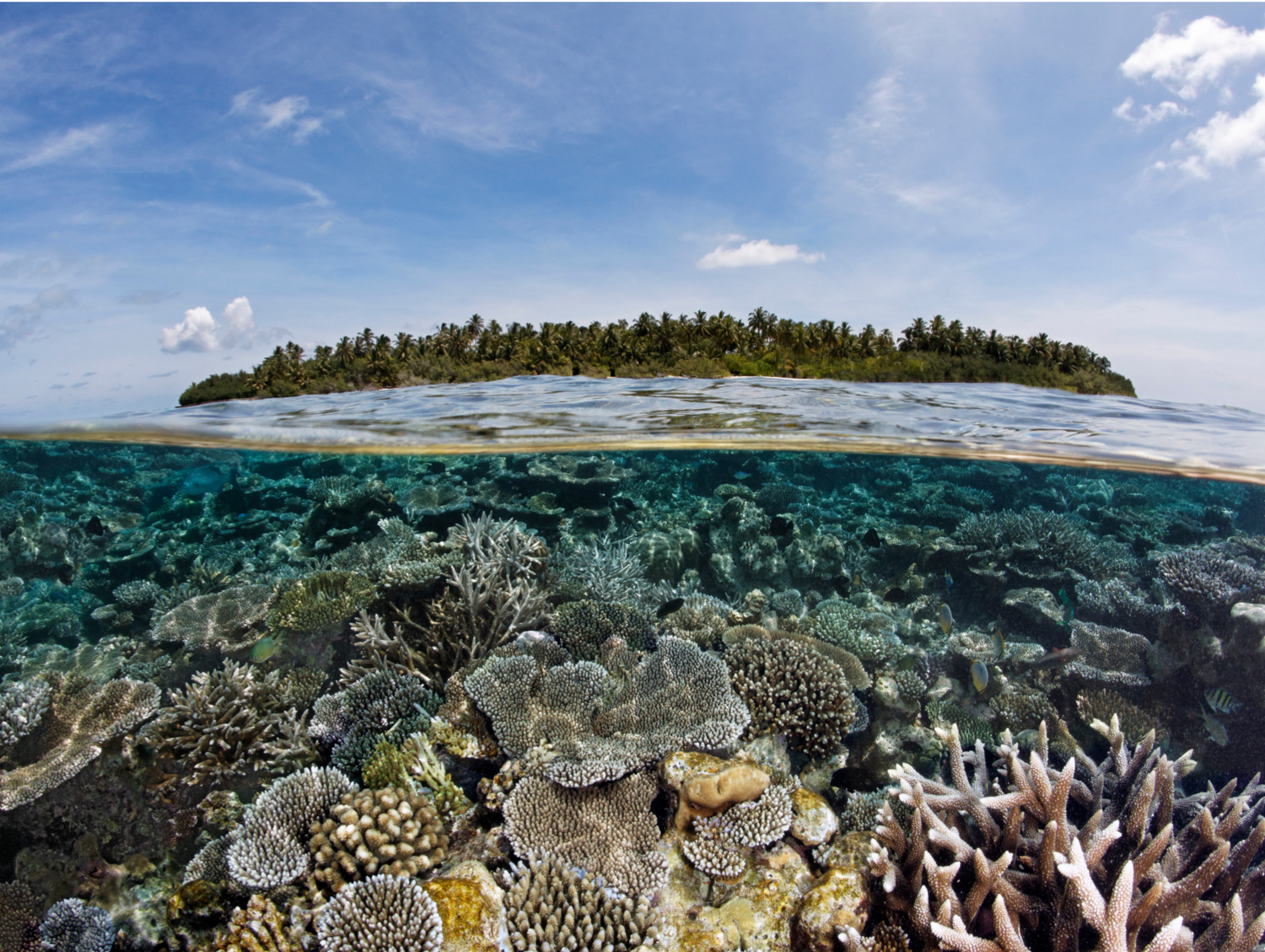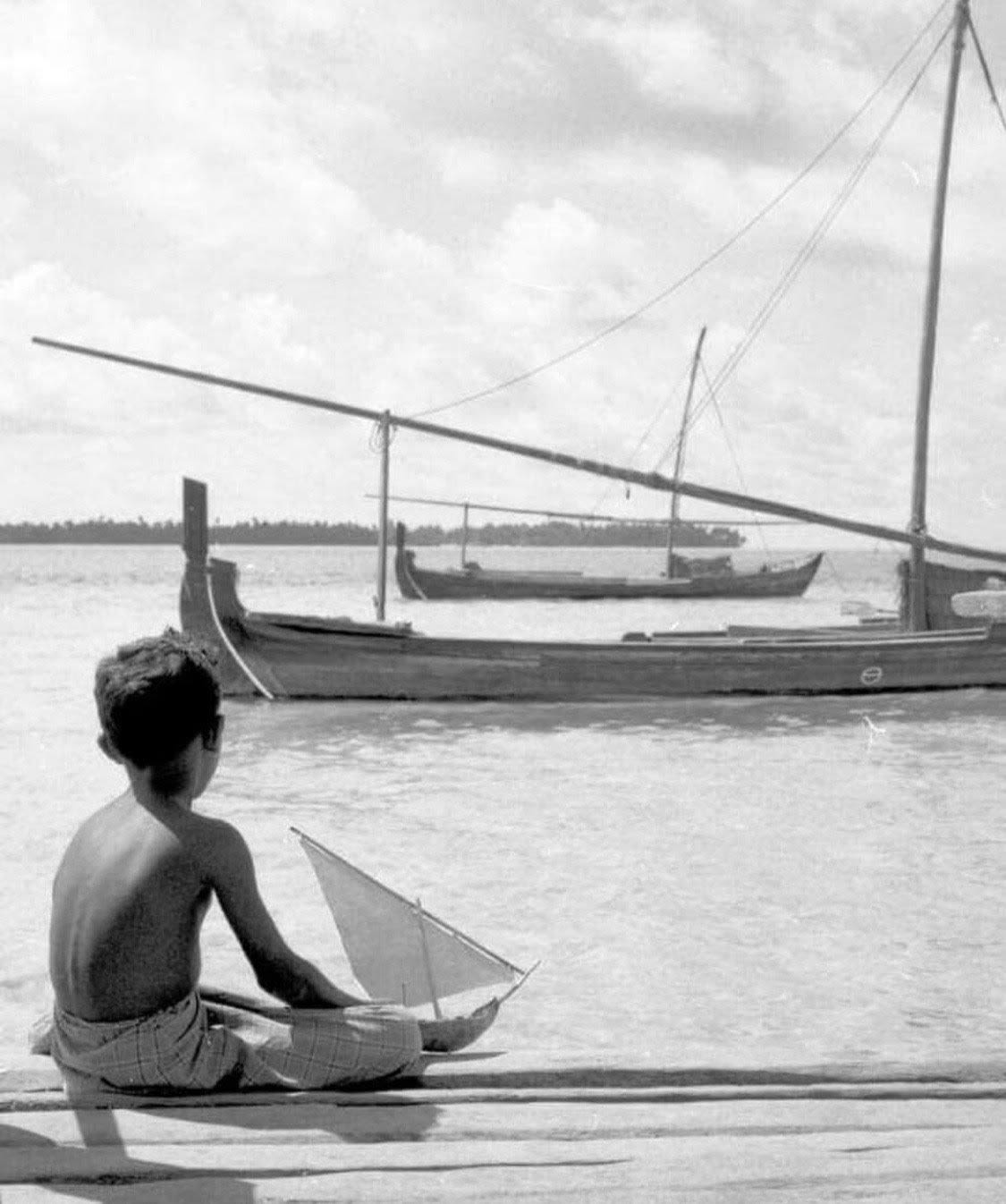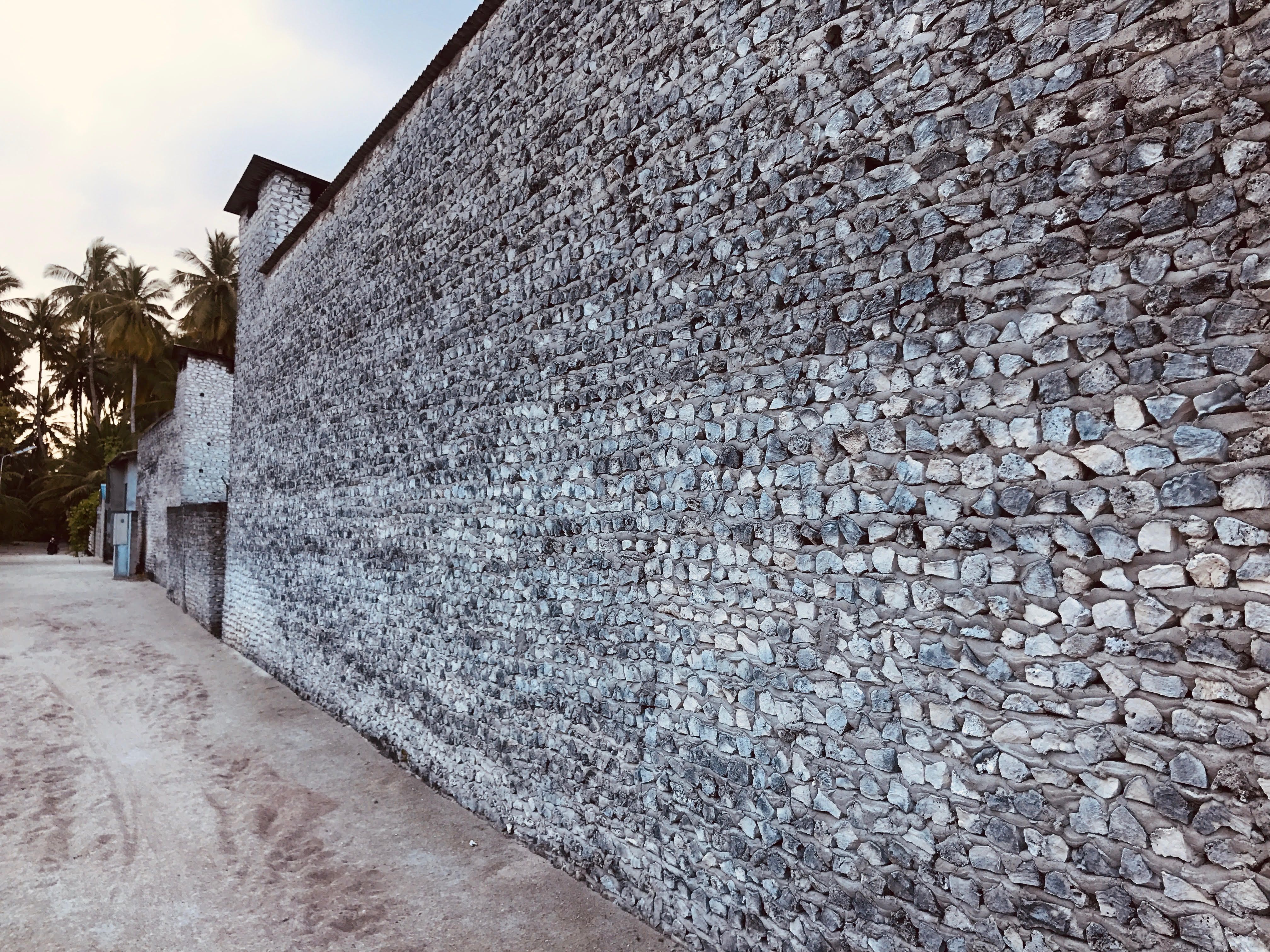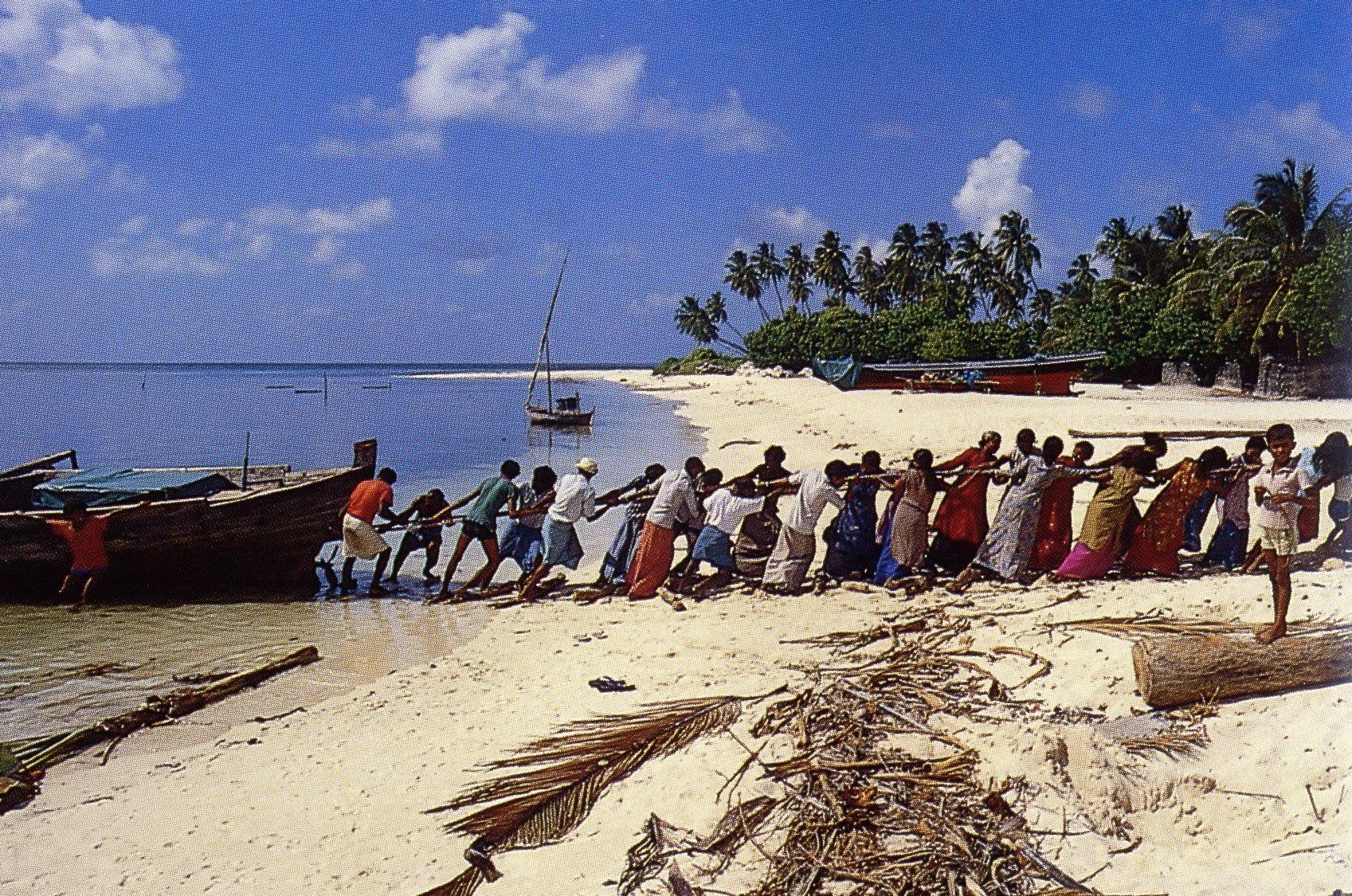Invest immediately in a net-zero carbon emissions future
The ocean makes up 99% of my home, the Maldives. It supports our native biodiversity, ancient culture and daily lives. Our very thinking is from an oceanic perspective. We have names for all the parts of the sea – the different depths, the colours, the ripples, the waves, the shapes and sections of reefs and the patches of corals. They are all embedded in language and used in life.
The ocean plays a vital role in regulating global climate and it is now sending us powerful messages of warning. Climate change is altering ocean temperatures and chemistry, changing currents and tides, raising sea levels, and causing losses in biodiversity. One of the most vulnerable ecosystems to these changes are coral reefs, because they need very specific conditions to survive.
The IPCC predicts 70-90% extinction of corals if global temperatures increase by 1.5°C, and 99% if they increase by 2°C. Yet the latest UNEP report says that emission targets from current Nationally Determined Contributions (NDCs) will lead to more than a 1.5°C rise, and unless this is addressed within this decade, warming is unlikely to stay below 2°C. These numbers hit hard for us in the Maldives because without our corals we have no natural ability to survive.
It is not an overstatement to say that we owe our existence to our corals. It is barely a worthy tribute for these incredible organisms that give us so much – sustenance, protection and livelihoods. Coral literally provides the very foundations for Maldivian society. We even used to mine coral to build our houses, which served as both bricks and as mortar. This practice was only stopped a couple of decades ago, but its traditional needs-based extraction had little lasting effect on the health of our reefs.
People have lived on and lived off our islands for thousands of years. There are ancient Maldivian copper plates dating back to the 11th century, inscribed with grants gifting controlled extraction of cowrie shells from specified parts of reefs, setting quotas and limiting access. As seen across cultures worldwide, Indigenous and traditional practices have much to teach us about conservation and sustainable ways.
Maldivian culture holds generations of information, including knowledge of monsoon-driven winds and currents, the shaping and shifting of islands, fish spawning aggregations, and the social and economic significance of different reefs. Including these priceless banks of local understanding and community voices in planning and decision making is crucial for developing new sustainable solutions and practices.
If the Maldives demonstrates one thing to the world, it is that if we are to keep our heads above water, we must immediately address the dual crises of biodiversity and climate change.
If our economy is not sustainable, we cannot sustain life. The existing global economic system encourages competition and unrestrained exploitation and extraction from the land, the ocean and all that inhabit them. It breaks personal relationships amongst people, as well as between people and the environment, weakening the reciprocal energy of receiving and giving back, which is how harmony in the living and natural world has been maintained until recent times.
The Earth is a water planet and the ocean is the one continuous tangible thing that connects us all.
Our experience in the Maldives shows us that we need to invest in ocean-based solutions to slow warming as well as protect biodiversity to ensure environmental and social well-being. This year, we must simultaneously slash emissions and pressure all our governments to commit to more ambitious and inclusive NDCs. We must RISE UP and pool together all our ingenuity and wisdom to find a new harmonious balance.
My own work is with the Maldives Coral Institute (MCI), a non-profit organisation founded by former President and climate activist, Mohamed Nasheed. The idea for MCI started with a conversation between Nasheed and Richard Branson on Necker Island and has become a reality with the help of many people including John Stares who also was at that first inspirational meeting. We work with science, community and policy, to make coral reefs and the ocean a priority locally and globally, to make the changes needed to ensure their survival.
I see corals in our walls today that I cannot see on our reefs anymore. Yet I remain an optimist and believe we can still save much of our marine life, not least because over 250 organisations from across the world have signed on to RISE UP and support the actions that are needed to put our ocean on the path to recovery. The I – ‘Invest immediately in a net zero carbon emissions future’ in RISE UP makes clear what we need to do to confront the intractable issues of climate change.
If the Maldives demonstrates one thing to the world, it is that if we are to keep our heads above water, we must immediately address the dual crises of biodiversity and climate change.
“I won’t tell Maldivians that our country is finished, and their children will live as climate refugees. As a nation, we reject that fate. This is a moment for radical action, not hopelessness.” – Mohamed Nasheed.
- This is a guest blog and may not represent the views of Virgin.com. Please see virgin.com/terms for more details.
This post is part of a series produced by Virgin Unite in partnership with Ocean Unite, an initiative to unite and activate powerful voices for ocean-conservation action. The views and opinions expressed in this blog are those of the authors and do not necessarily represent or reflect the views of Ocean Unite.



